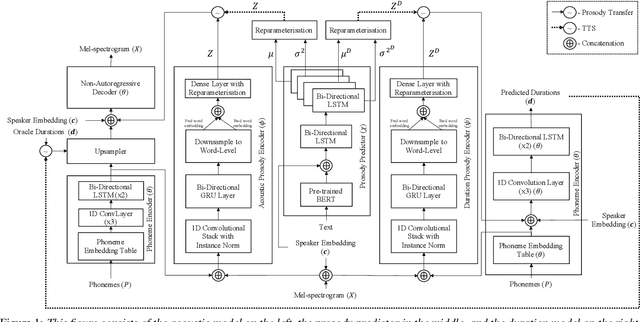CopyCat2: A Single Model for Multi-Speaker TTS and Many-to-Many Fine-Grained Prosody Transfer
Paper and Code
Jun 27, 2022

In this paper, we present CopyCat2 (CC2), a novel model capable of: a) synthesizing speech with different speaker identities, b) generating speech with expressive and contextually appropriate prosody, and c) transferring prosody at fine-grained level between any pair of seen speakers. We do this by activating distinct parts of the network for different tasks. We train our model using a novel approach to two-stage training. In Stage I, the model learns speaker-independent word-level prosody representations from speech which it uses for many-to-many fine-grained prosody transfer. In Stage II, we learn to predict these prosody representations using the contextual information available in text, thereby, enabling multi-speaker TTS with contextually appropriate prosody. We compare CC2 to two strong baselines, one in TTS with contextually appropriate prosody, and one in fine-grained prosody transfer. CC2 reduces the gap in naturalness between our baseline and copy-synthesised speech by $22.79\%$. In fine-grained prosody transfer evaluations, it obtains a relative improvement of $33.15\%$ in target speaker similarity.
 Add to Chrome
Add to Chrome Add to Firefox
Add to Firefox Add to Edge
Add to Edge